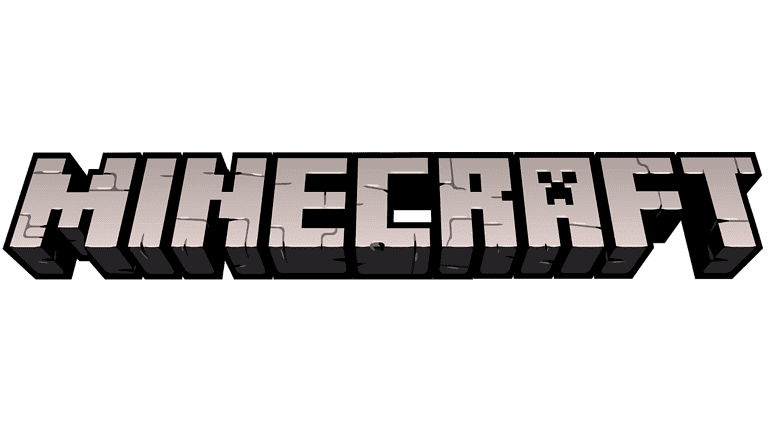
The gaming industry has been shocked by the sudden news of the entire gaming team at Annapurna Interactive resigning. This unexpected departure, which resulted from a failed spinoff attempt, raises questions about the future of the esteemed publisher and its upcoming projects. While Annapurna Pictures assures fans that current projects will continue as planned, the impact of this event on the company’s direction and the indie gaming landscape is yet to be determined.
Annapurna Interactive’s subsidiary, Fullbright, has also experienced significant turmoil, with several key staff members resigning due to a toxic work environment linked to co-founder Steve Gaynor. The mass departure at Fullbright highlights significant shortcomings in leadership and workplace culture that resonate throughout the gaming industry. As the situation continues to develop, it’s crucial to advocate for an equitable and respectful environment to ensure meaningful change that extends far beyond the confines of one studio.
Annapurna Interactive: A Seismic Shift
The Mass Resignation
In a surprising turn of events, the entire gaming team at Annapurna Interactive has collectively resigned. This includes all 25 members, including former president Nathan Gary.
The Catalyst: A Failed Spinoff
The mass exodus stemmed from a breakdown in negotiations between the team and Annapurna Pictures’ founder, Megan Ellison. The team sought to establish Annapurna Interactive as an independent company but failed to reach an agreement.
Impact on Current and Future Projects
While the situation is undoubtedly disruptive, Annapurna Pictures assures that all existing games and projects will continue under their umbrella. New employees are expected to replace the former staff.
Notable Titles by Annapurna Interactive
| Game Title | Release Year | Genre |
|---|---|---|
| What Remains of Edith Finch | 2017 | Adventure |
| Florence | 2018 | Interactive Story |
| Outer Wilds | 2019 | Open World Adventure |
| Sayonara Wild Hearts | 2019 | Rhythm Action |
| Telling Lies | 2019 | Interactive Movie |
| If Found… | 2020 | Visual Novel |
| Twelve Minutes | 2021 | Adventure |
| The Artful Escape | 2021 | Adventure, Platformer |
| Stray | 2022 | Adventure |
| Neon White | 2022 | First-Person Shooter, Card Game |
The Uncertain Future
The mass resignation leaves questions about the future direction of Annapurna Interactive. Will they continue to focus on their signature style of narrative-driven indie games, or will new leadership bring a change in focus? Only time will tell.
Short Summary:
- Fullbright co-founder Steve Gaynor steps down amid allegations of misconduct.
- Development of the game “Open Roads” is hindered by a mass exodus of staff.
- Concerns about the workplace culture and the treatment of female employees surfaced repeatedly among current and former staff.
In a startling turn of events in the gaming industry, Fullbright, the respected indie studio known for titles like “Gone Home” and “Tacoma,” has witnessed a mass departure of employees amidst accusations regarding the treatment of its staff, particularly women, under the leadership of co-founder Steve Gaynor. The situation escalated following the development woes of their upcoming game, “Open Roads,” which was announced with much anticipation in December 2020.
Reports indicate that since the inception of “Open Roads,” which features notable actors Keri Russell and Kaitlyn Dever, around 15 employees have exited the studio, leaving only about six individuals behind. This troubling trend has raised substantial concerns about the company’s work culture, prompting various media outlets, including Polygon, to uncover the details surrounding Gaynor’s behavior and its effects on staff morale.
“As the creative force behind Fullbright, Steve’s leadership style was hurtful to people at Fullbright, and for that, I truly apologize,” Gaynor stated while addressing the situation.
Gaynor stepped down from his creative lead role for “Open Roads” in March 2021 after it became evident that necessary improvements in team dynamics were not taking hold. According to a representative from Fullbright, “Steve stepped down after it became clear that the steps already taken to improve his interactions with the team were yielding only temporary results.” This acknowledgment of the brewing crisis points to a deeper issue within the studio’s culture.
Allegations surfaced that many former employees described an environment that was not only damaging but also daunting to address. Twelve former employees disclosed that Gaynor’s approach was perceived as “controlling.” “It often felt like working for a high school mean girl,” said one former female leader, likening experiences working with Gaynor to the social pressures of adolescent life. The culture within Fullbright seemed to be masked by a façade of inclusivity, when, in reality, subtle microaggressions created a toxic atmosphere that many women found difficult to navigate.
At the heart of these complaints is a concern that Gaynor’s behavior impacted the professional lives of several women, leading to a troubling trend of departures from the studio. It was reported that around two-thirds of those who left since the game’s production began were women. Staff members felt undermined and hushed, leading to fears of professional repercussions for speaking out against what many characterized as a toxic culture.
“How do we ensure we are creating an environment that results in women feeling respected?” said one former employee, reflecting on the lack of infrastructure for reporting concerns.
The societal pressures in the gaming industry, particularly for women in a studio renowned for its progressive storytelling, add further complexity. Fullbright has consistently marketed itself as an inclusive workplace, attracting talent eager to contribute to narratives that engage with the experiences of marginalized voices. However, the stark contrast of this mission statement against the lived experiences of employees suggests a significant gap between ideals and reality.
Additionally, those who attempted to report Gaynor’s excessive control over contributions faced stark limitations. The studio had no dedicated human resources personnel to address these complaints adequately—relying instead on sporadic third-party consultants without firm protocols for escalation or accountability.
In one chilling account, a former employee told of her conversation with Gaynor after adopting a proactive approach in raising concerns, likening instances of toxicity to those reported at Scavengers Studio. The lack of a viable reporting structure made it difficult for team members to nurture a healthy workspace despite clear intent to uplift a productive environment.
“There’s no infrastructure to escalate,” revealed one former employee, highlighting the systemic failures within the studio.
As discontent brewed behind the scenes, several employees opted for more discreet means of expressing their concerns. They resorted to leaving anonymous notes during a third-party team-building exercise, lamenting the exodus of female employees and calling for better accountability and training to ensure a respectful working environment.
Reports also surfaced of employees self-censoring their criticisms of Gaynor for fear of career repercussions, reinforcing a power dynamic that placed employees at a severe disadvantage. Out of fear of being blacklisted within the industry, many staff decided to leave gaming altogether, reflecting a broader trend that unveils critical issues within the workplace culture of prominent indie studios.
“It turns my stomach to think that he still gets to write these games about women’s stories when this is how he treats them in real life,” lamented a former employee, emphasizing the conflict between the studio’s narrative focus and the reality of its internal operations.
The current landscape raises further questions as Annapurna Interactive, the publisher for “Open Roads,” has declared its intent to support the remaining Fullbright staff in ensuring a healthier working environment. The collaborative nature of this relationship may present an opportunity for transformation, but many former employees remain skeptical.
Since Gaynor’s departure from day-to-day activities, concerns linger regarding his continued involvement in “Open Roads” as a writer. Multiple stakeholders who have voiced opinions on this issue have expressed discomfort, given the nature of the game’s narrative centered around female characters—a thematic focus that feels misplaced when juxtaposed with Gaynor’s alleged treatment of women in the workplace.
“I want women in the industry and this studio to feel valued,” another former employee expressed, denouncing the ongoing toxicity that prevails since Gaynor’s early leadership.
As the studio scrambles to rebuild, many employees have voiced a desire for a cultural renaissance within Fullbright—one that affirms their commitment to fostering an inclusive workspace and actively seeks accountability at all levels. The desire to create a supportive environment for women in gaming has never been more critical, especially as efforts immediately following Gaynor’s departure continue to evolve. The gaming world watches closely as Fullbright navigates these tumultuous waters, pledging to reclaim its reputation not merely as a developer of compelling narratives, but one that embodies the values it professes to cultivate.






